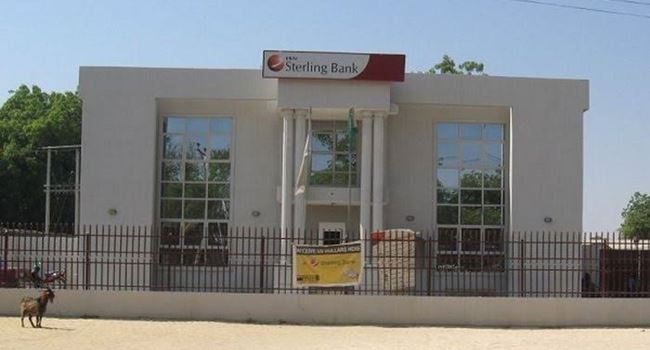Business
Sterling Bank’s full-year profit rises by 17%

Sterling Bank Plc has reported a 17 percent increase in its profit after- tax for full year 2019 compared to the relative period of 2018.
The tier 2 lender detailed the account of its financial performance in the period under review in its Condensed Unaudited Group Interim Financial Statements December 2019, posted on the Nigerian Stock Exchange (NSE) website.
Gross Earnings improved marginally by 0.5 percent, inching up from N148.708 billion at FY2018 to N149.469 billion in the same period last year.
Interest Income advanced from N125.163 billion at FY2018 to N127.166 billion at FY2019 while Net Fees and Commission Income similarly rose from N11.755 billion at FY2018 to N14.612 billion at FY2019.
Profit Before Tax (PBT) stood at N10.913 billion at the end of December 2019, up from N9.489 billion in the relative period of 2018, translating to 15 percent growth.
A 17.2 percent uptick in Profit After Tax saw it grow from N9.218 billion at FY 2018 to N10.808 billion at FY2019.
Earnings Per Share (EPS) climbed up to N0.38 at FY2019 from N0.32 at FY2018, representing an 18.75%.
However, operational efficiency worsened in the period under review with Sterling Bank’s Total Expenses escalating from N63.494 billion at FY2018 to N70.267 in the same period of 2019, signalling a 10.7 percent rise.
Read also: Konga in the shadow of Jumia: A look at the industry and how well Konga is faring doing business
At the moment, Sterling Bank’s outstanding shares stand at 28,790,418,126 with a market valuation of about N48.080 billion. Its dividend yield is currently 1.09 percent.
A full service national commercial bank, it was incorporated in 1960 as Nigerian Acceptances Limited (NAL) and metamorphosed over the years from an investment bank to a commercial bank.
Sterling Bank currently trades on the floor of the NSE at N1.84 per share.
Earnings Per Share is the profit that each unit of a company’s ordinary shares yields during a particular period. It is simply calculated by dividing the Profit After-Tax by the company’s total outstanding shares. Increase in a company’s EPS often reflects an improvement in its bottom-line while a fall, on the other hand, indicates a declining profit.
Join the conversation
Support Ripples Nigeria, hold up solutions journalism
Balanced, fearless journalism driven by data comes at huge financial costs.
As a media platform, we hold leadership accountable and will not trade the right to press freedom and free speech for a piece of cake.
If you like what we do, and are ready to uphold solutions journalism, kindly donate to the Ripples Nigeria cause.
Your support would help to ensure that citizens and institutions continue to have free access to credible and reliable information for societal development.




















